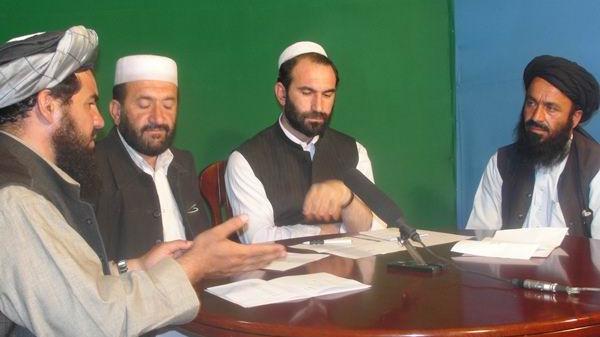KABUL - To mark the beginning of the Holy month of Ramadan, UNAMA field offices throughout the country organized a series of radio and TV roundtable discussion on “Peace from the perspective of Islam”. While many discussions emphasized teachings from the Quran, participants also drew inspiration from the Quran to discuss the search for peace and reconciliation in Afghanistan.
Altogether about a dozen events would be held throughout the country. The discussions were led by respected scholars of Islam and were aired on Radio Television Afghanistan as well as independent channels.
In Gardez, the discussion participants were Maulavi Shah Mohammad, head of the provincial Uleam’s Council, Maualvi Sardar Mohammad Zadran, head of the Mujahidin Council and Ilias Wahdat, an influential and civil society activist. The participants agreed that Islam stresses the importance to peace and reconciliation, noting that Allah says there is no blessing in much talk but talks meant for reconciliation.
Discussing the ongoing search for peace in Afghanistan, Sardar called the mechanism of the High Peace Council imperfect, saying that those who can interact with both sides have been ignored from the peace process and that too many resources are commonly spent on slogans. Instead, the government and the international community should seek the council of ex-Jahadi commanders, intellectuals, tribal elders, religious scholars and civil society organizations.
Describing and endorsing the Afghan Peace and Reconciliation Process, scholar Ilyas Wahdat said “we are a peace loving nation, war has been imposed on us, the international community made tall claims for reconstruction of the country and the well-being of the people but they have been fighting unnecessary war and kill innocent civilians, those who joined the peace process are irritated by the Afghan and foreign forces”.
Ilyas Wahdat said there should be Afghan ownership over the peace process. He referred to the recent example of Egypt, when large numbers of heretofore marginalized citizens have been able to vote in a new government. He also thought that a culture of tolerance needs to be promoted if there is to be lasting peace in Afghanistan.
“We suffered three decades war which destroyed all aspects of our life so it is important to note that peace process is likely to be long,” Mr Wahdat said.
In Gardez, Maulavi Abdul Wahid and Maulavi Masom Jan, both from the Department of Haj and Religious Affairs, and Scholar Dr Abdul Hadi Hamas, the head of the doctors association in Paktya province discussed the possible benefits that would accrue from peace in the country.
“All sorts of prosperities are enshrined in peace and peace is a gift of God,” said Maulavi Abdul Wahid. “Almighty Allah says in the holy Quran “a Muslims is a brother of another Muslim, wish peace among them that their rights may not be harmed.”






